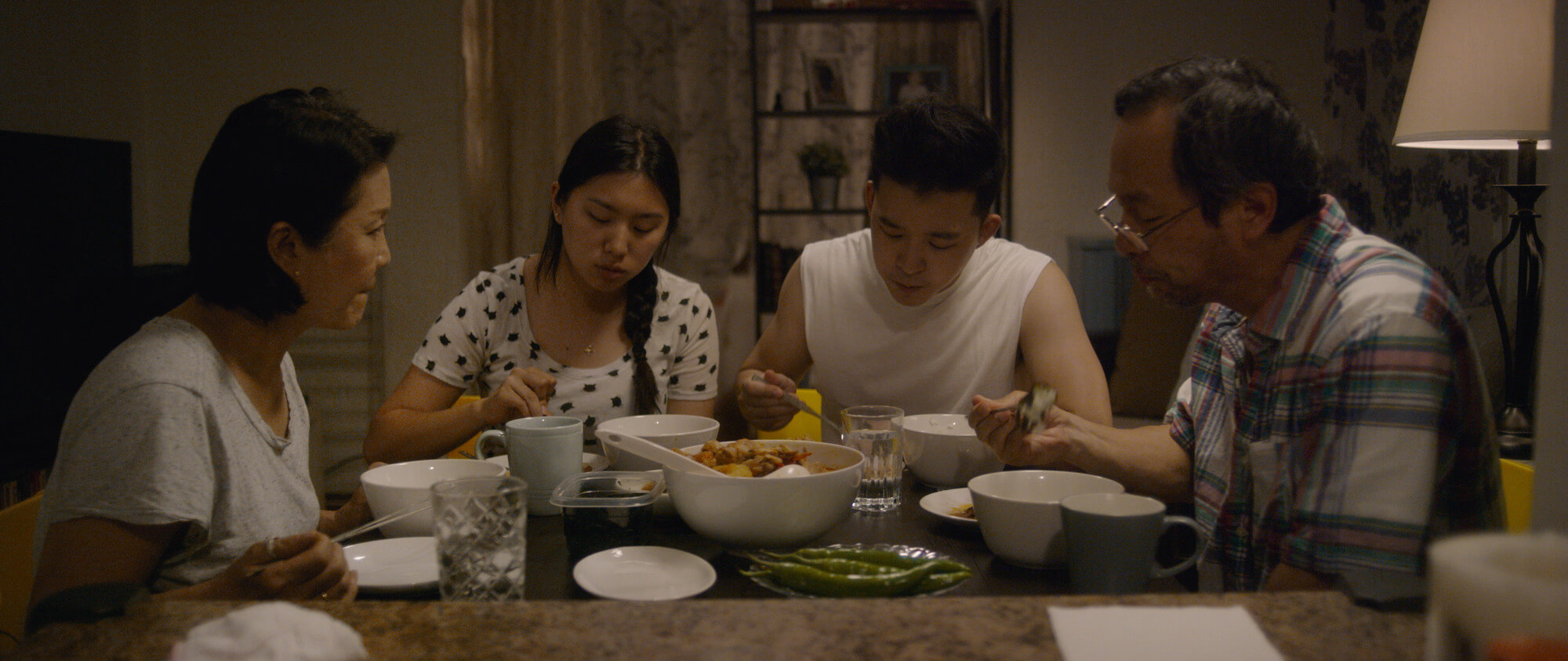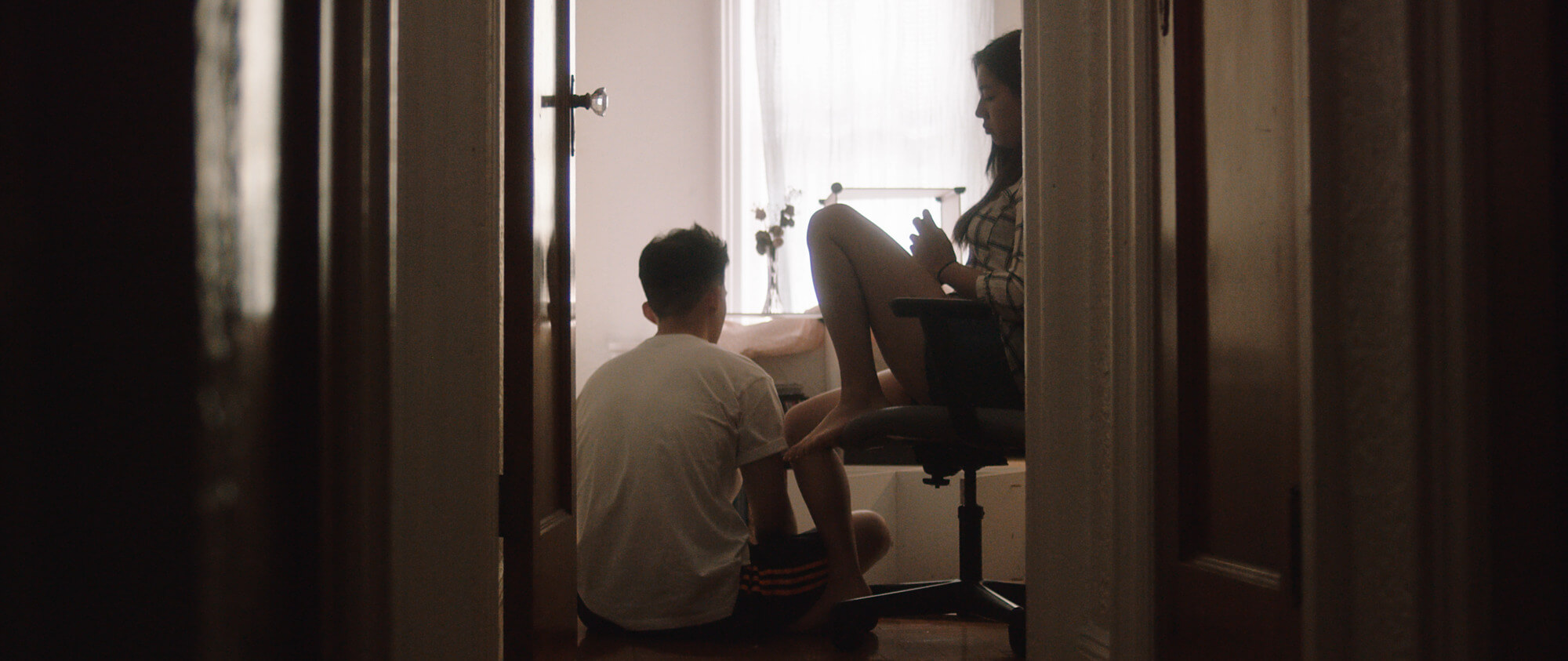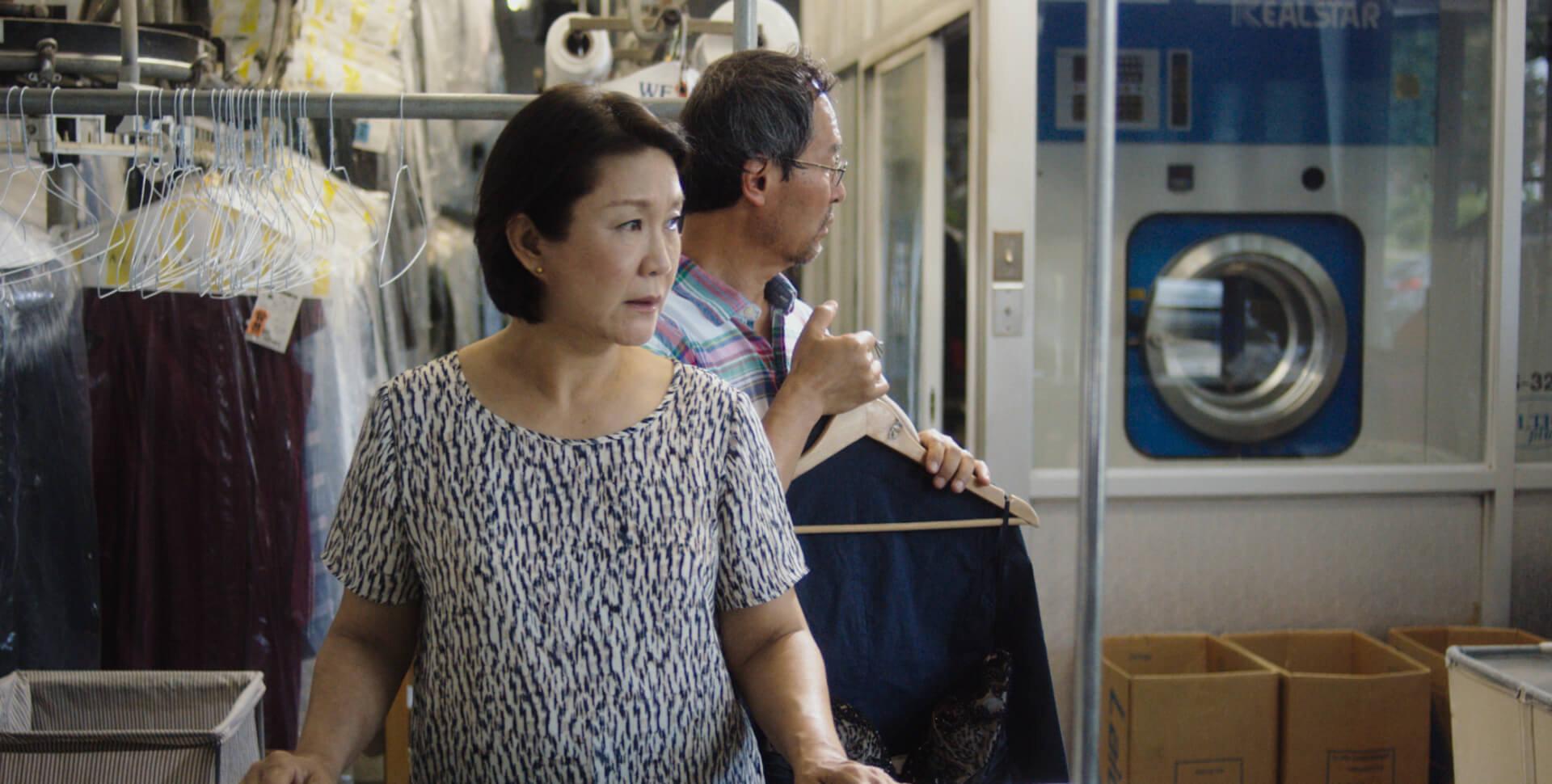Happy Cleaners is a 2019 family drama film about a Korean-American household living in Queens, New York. The feature follows three storylines. 1. The mother and father struggle to make ends meet with their dry cleaning business. 2. The son, Kevin, drops out of school to pursue a dream of opening a food truck. 3. The daughter, Hyunny works hard as a nurse and struggles to figure out a future with her boyfriend. Each of their struggles intersects at home and results in regular clashes at the family dinner table. Despite the fighting, they're a family and they support one another. This familiar American story showcases the experiences of first and second-generation Korean-Americans.

Budget. Happy Cleaners is a Kickstarter success — a low-budget indie. This movie is a product of love and the filmmakers worked with what they had. Though that love and care shows in the final product, the budget shows as well. Happy Cleaners was working with a 100,000 USD budget that does not translate well to the screen. The color grading makes the movie look more like a sitcom than a feature release. There aren’t any visually striking shots in the film (perhaps the result of time constraints). The only time the cinematographer seemed fully engaged was when shooting the Korean dishes. Those were exquisitely displayed and showed the diverse colors and textures of the many dishes that make up a Korean dinner. It was great to look at, but the film would have been served better if that approach was taken to every frame.

Dialogue and acting. The film often suffers from expositional dialogue that’s boring to listen to and slows the pace of an already uneventful movie. Line delivery was generally fine but some of the physical acting felt cartoonish. The Choi family fights a lot and verbal arguments require a lot from actors. The matriarch of the family is often at the center of these fights and she can bring her intensity up in a believable manner that's sure to remind viewers of their own mothers. The mother carried these scenes as the actors playing her children were often unable to match her intensity.

Themes. Hyunny diligently works at her job to help pay the family’s rent and pay bills. She is hard-working and is dedicated to her parents. It’s a stark contrast to her younger brother Kevin who contributes nothing to the family and drops out of school. Kevin helps with deliveries for the dry cleaning business at one point but that’s the only time he manages to give back. There is a scene where he chastises his father for not working hard enough despite providing nothing himself. We see a gendered experience from the difference in Hyunny and Kevin’s stories and even in their names. Hyunny takes on a more Korean role and Kevin a more American one. However, the film never discusses or really acknowledges it. It does make Kevin a particularly unlikeable character though. The heart of the film is shown when Hyunny says that she and her brother — as second-generation kids — are the hyphen in Korean-American. They aid in the family’s transition from Korean to American. It suggests that their eventual third-generation children will enjoy just being American, not having to help their parents in transitioning to American culture or language, not having to financially support their parents as young adults. There is hardship in each of these generations, but also triumph and happiness. This is a great central theme but again, it is not explored in a meaningful context. The film touched on a couple of different aspects of the Asian American immigrant experience; all of them had to do with finance and had the throughline of Kevin and Hyunny taking on the role of hyphens. Ultimately, Happy Cleaners doesn't contribute anything new to the discourse around immigrants in the United States. Each of the Choi storylines are unoriginal, and as a result, dull.
Happy Cleaners is a film with heart but doesn’t fully engage the viewer.


